
Vahdat: The Hidden Gem of Tajikistan
Vahdat, a charming city nestled in the heart of Tajikistan, offers a unique blend of natural beauty and cultural heritage. Located just a short drive from the capital, Dushanbe, Vahdat is an ideal destination for those looking to escape the hustle and bustle of city life and immerse themselves in a more serene environment. Vahdat is surrounded by picturesque mountains and lush valleys, making it a haven for outdoor enthusiasts. Hiking, trekking, and exploring the scenic trails are just some of the activities that visitors can enjoy. The city's proximity to the Varzob River also provides opportunities for fishing and picnicking by the water. Culturally, Vahdat is rich with history and tradition. The local markets are a treasure trove of handmade crafts, traditional clothing, and delicious Tajik cuisine. Visitors can experience the warm hospitality of the Tajik people and learn about their customs and way of life. The city's mosques and historical sites offer a glimpse into its past, making Vahdat a fascinating destination for history buffs. Whether you're seeking adventure in the great outdoors or a peaceful retreat to connect with nature and culture, Vahdat promises an unforgettable experience.
Local tips in Vahdat
- Best time to visit Vahdat is during spring and autumn when the weather is mild and perfect for outdoor activities.
- Hire a local guide to explore the hiking trails and ensure you don't miss any hidden spots.
- Visit the local markets early in the morning for the freshest produce and unique handmade crafts.
- Learn a few basic phrases in Tajik to enhance your interactions with the locals.
- Carry sufficient cash as ATMs might not be readily available in more remote areas.
Vahdat: The Hidden Gem of Tajikistan
Vahdat, a charming city nestled in the heart of Tajikistan, offers a unique blend of natural beauty and cultural heritage. Located just a short drive from the capital, Dushanbe, Vahdat is an ideal destination for those looking to escape the hustle and bustle of city life and immerse themselves in a more serene environment. Vahdat is surrounded by picturesque mountains and lush valleys, making it a haven for outdoor enthusiasts. Hiking, trekking, and exploring the scenic trails are just some of the activities that visitors can enjoy. The city's proximity to the Varzob River also provides opportunities for fishing and picnicking by the water. Culturally, Vahdat is rich with history and tradition. The local markets are a treasure trove of handmade crafts, traditional clothing, and delicious Tajik cuisine. Visitors can experience the warm hospitality of the Tajik people and learn about their customs and way of life. The city's mosques and historical sites offer a glimpse into its past, making Vahdat a fascinating destination for history buffs. Whether you're seeking adventure in the great outdoors or a peaceful retreat to connect with nature and culture, Vahdat promises an unforgettable experience.
When is the best time to go to Vahdat?
Iconic landmarks you can’t miss
Rudaki Park
Discover the beauty of Rudaki Park in Dushanbe, a lush green space perfect for relaxation, cultural exploration, and enjoying the local atmosphere.
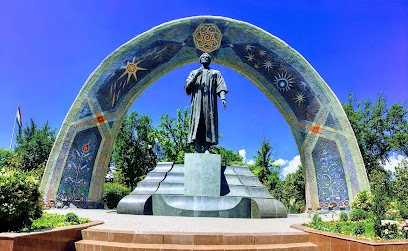
Navruz Palace
Explore the architectural marvel and cultural richness of Navruz Palace, a must-see destination in Dushanbe, Tajikistan.
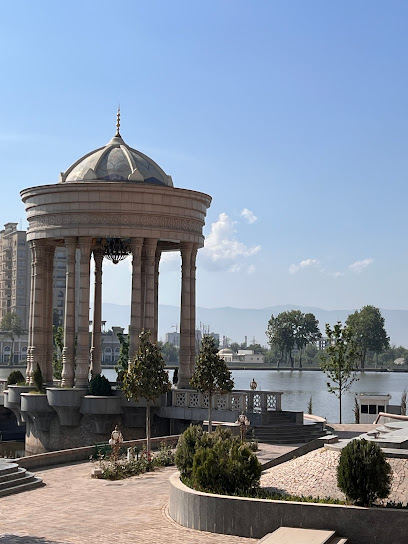
Kamoli Khujandi Park
Discover the serene beauty of Kamoli Khujandi Park in Khujand, Tajikistan, a perfect spot for relaxation, nature walks, and cultural experiences.
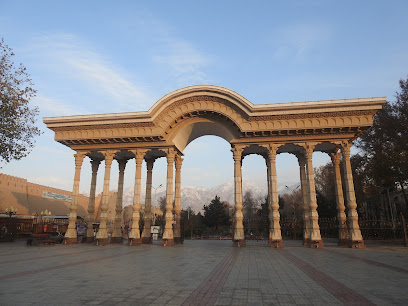
Hisor Fortress
Discover Hisor Fortress, a historic gem near Dushanbe, showcasing stunning architecture and breathtaking views of Tajikistan's beautiful landscapes.
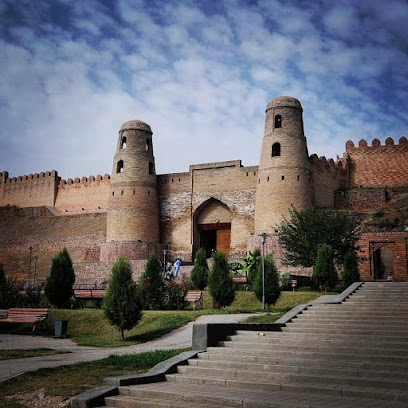
Hilton Dushanbe
Discover unparalleled luxury and comfort at Hilton Dushanbe, the premier hotel for travelers seeking sophistication and local charm in Tajikistan's capital.
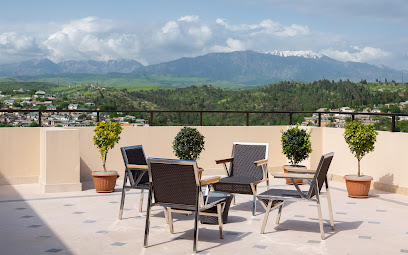
Flagpole
Visit the breathtaking Flagpole in Dushanbe, a symbol of Tajikistan's pride and culture, and capture unforgettable moments in a picturesque setting.
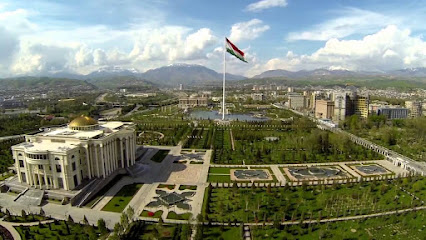
National Museum of Tajikistan
Explore the National Museum of Tajikistan - a cultural gem showcasing the rich history and diverse heritage of Tajikistan in Dushanbe.
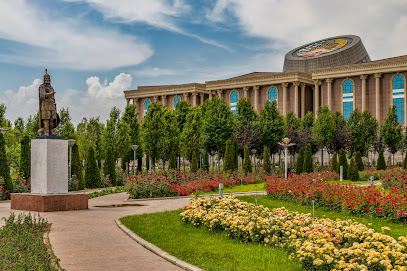
Hаji Ya'qub Mosque
Explore the Hāji Ya'qub Mosque, a stunning example of Islamic architecture and a vibrant cultural hub in Dushanbe, Tajikistan.
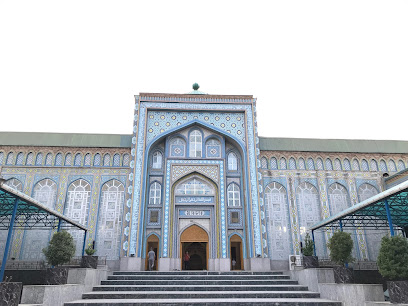
Stella Khujand
Explore Stella Khujand, a captivating tourist attraction in Tajikistan offering stunning views, rich culture, and unforgettable experiences.
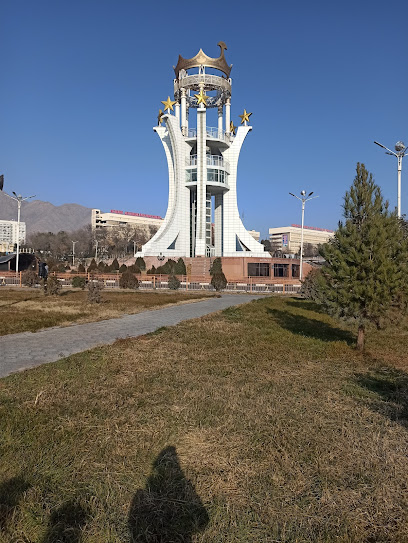
Tajik National Park
Explore the stunning Tajik National Park, a UNESCO World Heritage Site, offering breathtaking landscapes and diverse wildlife in the heart of Tajikistan.
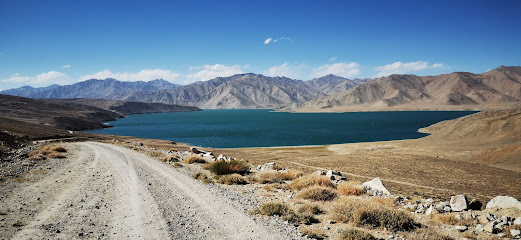
National Museum of Antiquities of Tajikistan
Discover the rich cultural heritage of Tajikistan at the National Museum of Antiquities, home to stunning artifacts including the world's largest Buddha sculpture.
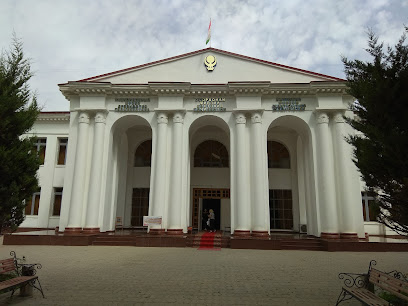
Kamal Khujandi Statue
Explore the Kamal Khujandi Statue in Khujand, a majestic tribute to Tajikistan's literary heritage and a serene spot for reflection.
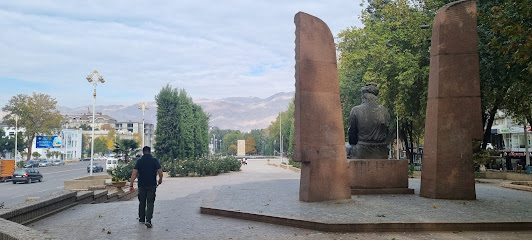
Arbob Palace
Explore Arbob Palace, a stunning government building and tourist attraction in Khujand, Tajikistan, showcasing the rich culture and history of the region.
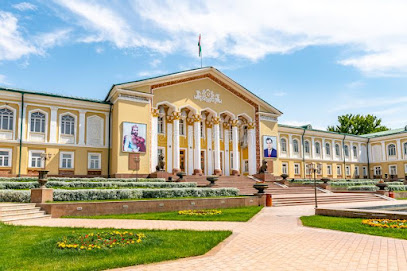
Yamchun Fort
Explore the ancient Yamchun Fort in Tajikistan, a historical landmark offering breathtaking views and a glimpse into the Silk Road's rich heritage.
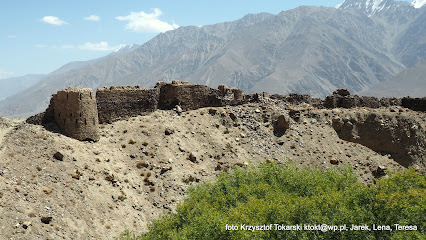
муҷассамаи Исмоили Сомонӣ
Explore the Ismoili Somoni Monument in Dushanbe, a magnificent tribute to Tajikistan's rich heritage and cultural pride, surrounded by serene landscapes.
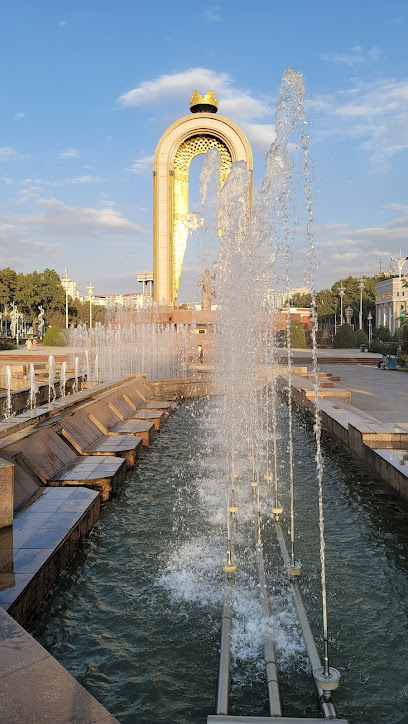
Unmissable attractions to see
Ayni Park
Explore Ayni Park in Dushanbe, a beautiful urban park filled with lush greenery and whimsical dinosaur sculptures, perfect for relaxation and family fun.
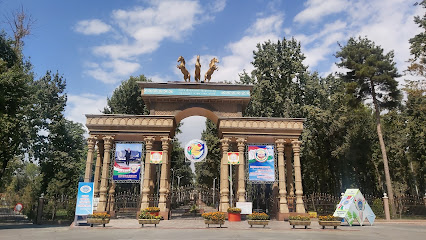
Hisor Fortress
Explore the breathtaking Hisor Fortress in Tajikistan, a stunning blend of history, culture, and natural beauty, perfect for every traveler's itinerary.
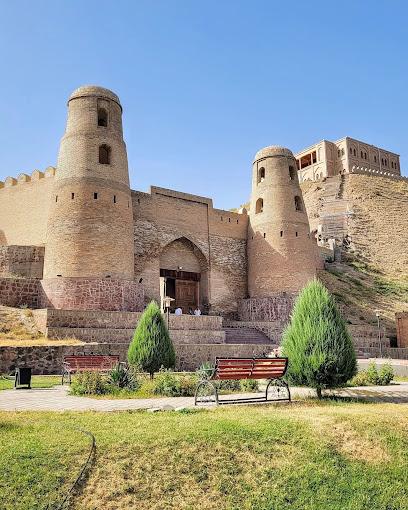
Dushanbe Zoo
Explore the Dushanbe Zoo, a family-friendly attraction showcasing diverse wildlife in a beautiful park setting, perfect for animal lovers and explorers alike.
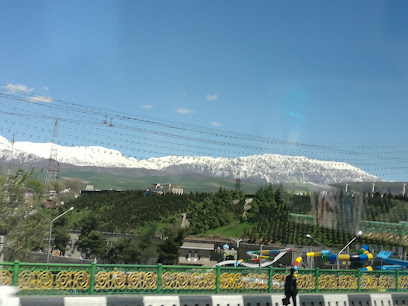
Cyrus the Great Park
Discover tranquility and cultural heritage at Cyrus the Great Park, a lush urban oasis in Dushanbe, Tajikistan.
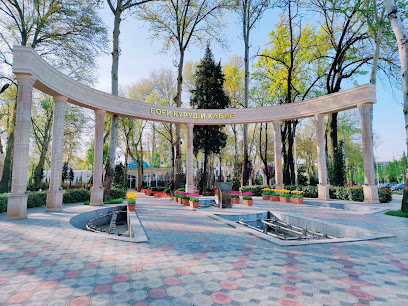
National Museum of Tajikistan
Explore the National Museum of Tajikistan for an immersive journey through the country's rich history and vibrant culture in the heart of Dushanbe.
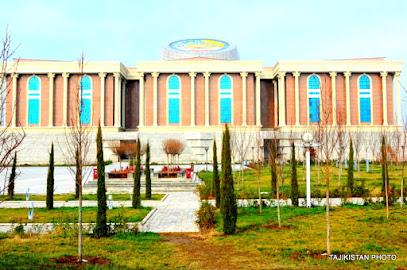
Hаji Ya'qub Mosque
Explore the stunning Hāji Ya'qub Mosque, a spiritual haven in Dushanbe, showcasing exquisite architecture and rich Tajik culture.
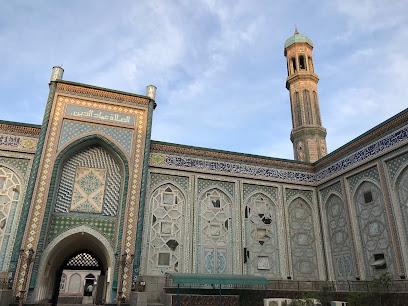
Varzob
Explore the stunning Varzob Valley near Dushanbe, where pristine nature and adventure await in Tajikistan's beautiful landscapes.
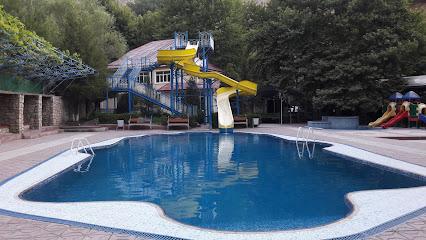
Monument Istiklol
Discover the Monument Istiklol, a stunning symbol of national pride in Dushanbe, showcasing Tajikistan's rich history and vibrant culture.
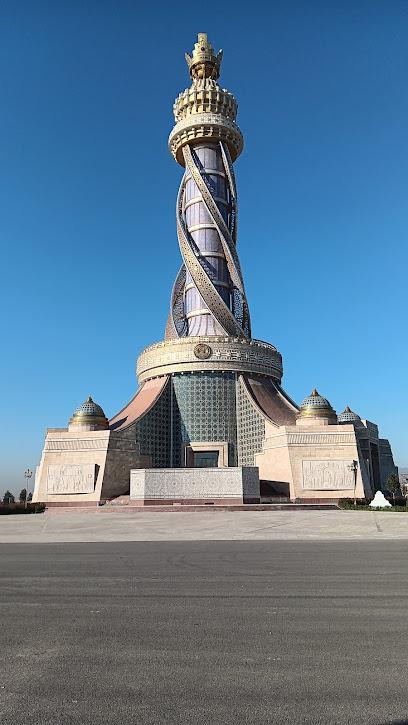
Madrassa-i Kuhna
Explore the enchanting Madrassa-i Kuhna, a historical museum in Hisor, Tajikistan, showcasing the country's rich cultural heritage and architectural splendor.
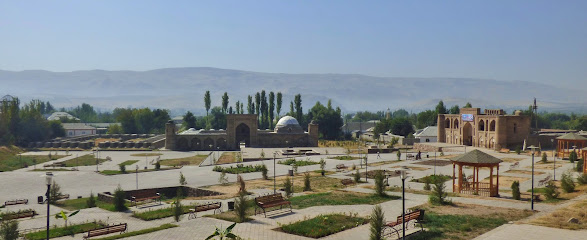
Essential places to dine
Merve Cafe
Experience authentic Turkish flavors at Merve Cafe in Dushanbe – where every dish tells a story.
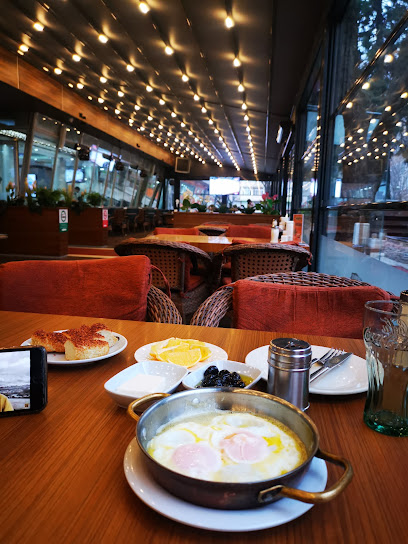
Merve Restaurant
Experience authentic Turkish cuisine at Merve Restaurant in Dushanbe, where every dish tells a story of flavor and tradition.
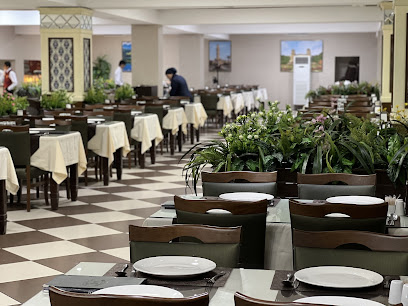
Bukhara
Explore Bukhara: A Culinary Journey Through Tajikistan's Rich Flavors and Culture
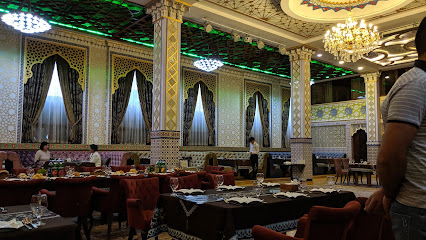
Toqi Teahouse
Experience authentic Tajik cuisine and traditional teas at Toqi Teahouse in Dushanbe – where culture meets comfort.
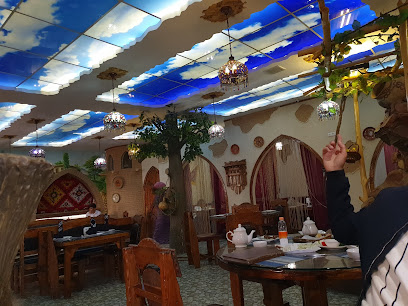
Restaurant Sharbat
Experience authentic Tajik cuisine at Restaurant Sharbat in Dushanbe – where every dish tells a story.
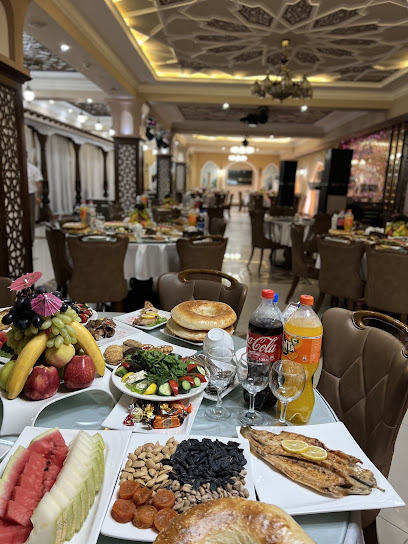
Sultanbey
Experience authentic Turkish cuisine at Sultanbey in Dushanbe, where flavors come alive in every dish.
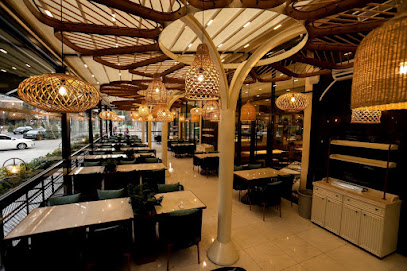
OK
Experience the rich flavors of Tajik cuisine at this upscale Dushanbe restaurant offering traditional dishes in an elegant setting.
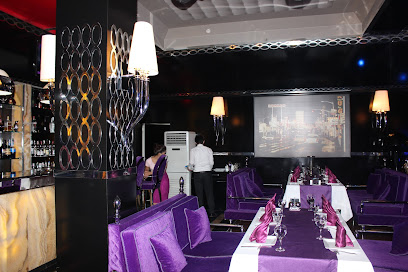
Qurutob restaurant Noor
Experience the rich flavors of authentic Tajik cuisine at Qurutob Restaurant Noor in Dushanbe - a culinary gem for every traveler.
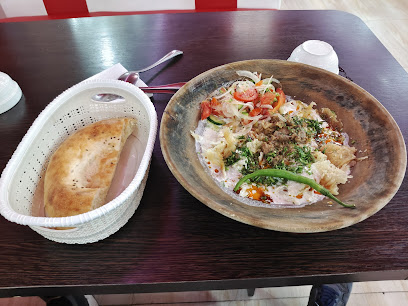
Steak House
Discover exquisite steaks and a delightful dining atmosphere at Steak House in Dushanbe – where taste meets tradition.
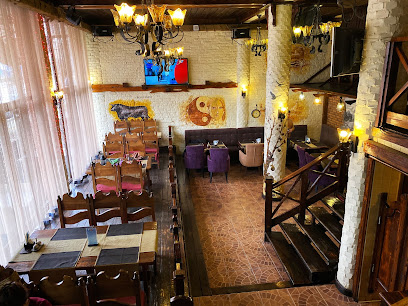
Jahon-Aka Teahouse
Discover the essence of Tajik culture at Jahon-Aka Teahouse in Dushanbe - where traditional flavors meet warm hospitality.
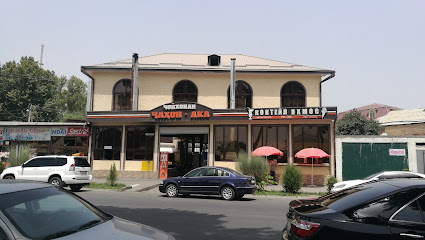
Oshi Barodaron
Experience authentic Tajik cuisine at Oshi Barodaron in Dushanbe - where traditional flavors meet warm hospitality.
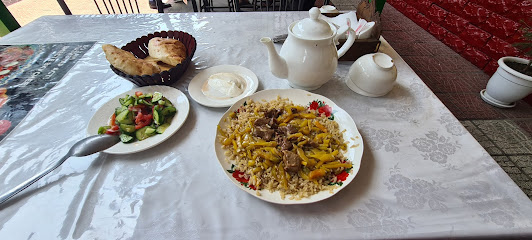
Qurutobkhona-i Navruzi
Experience authentic Tajik cuisine at Qurutobkhona-i Navruzi in Dushanbe—where tradition meets flavor.
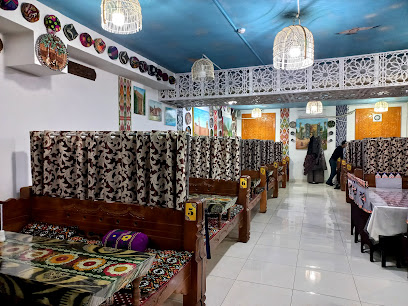
Zafar Restaurant
Experience the authentic flavors of Tajikistan at Zafar Restaurant in Dushanbe—where tradition meets culinary excellence.
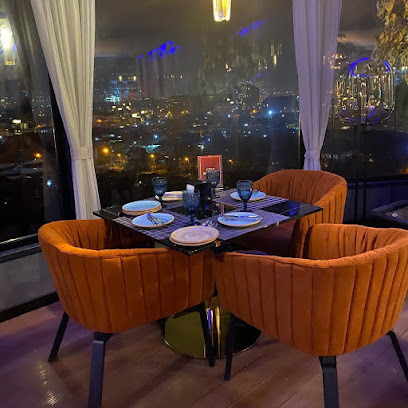
Yak Restaurant
Discover the authentic taste of Tajik cuisine at Yak Restaurant – a must-visit destination for meat lovers in Dushanbe.
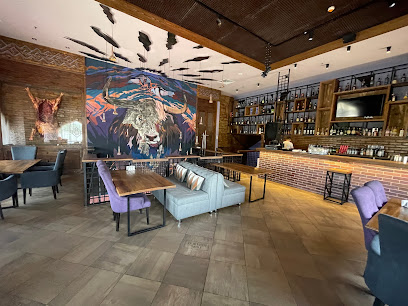
Fiza Restaurant
Experience authentic Tajik flavors at Fiza Restaurant in Dushanbe – where tradition meets contemporary culinary art.
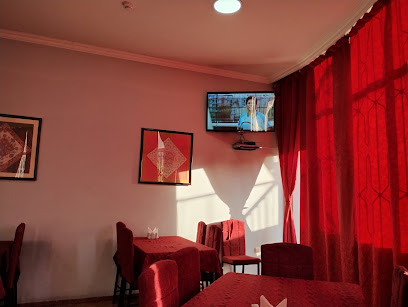
Markets, malls and hidden boutiques
Sadbarg Trade Center
Explore shopping delights and culinary experiences at Sadbarg Trade Center, a vibrant shopping mall in the heart of Dushanbe.
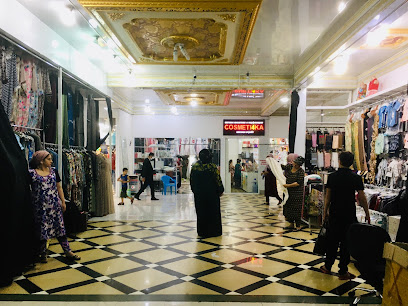
Central Department Store
Explore the Central Department Store in Dushanbe for a unique shopping experience featuring local crafts and international brands.
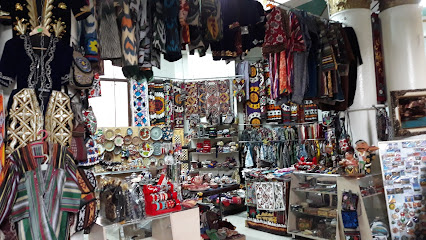
Grocery Shop
Experience the vibrant local culture at Vahdat's Grocery Shop, where authentic Tajik flavors and friendly service meet.
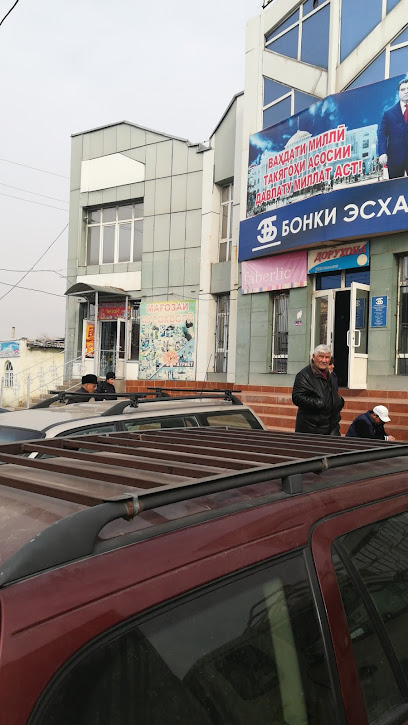
Noor Art Gallery
Immerse yourself in Tajikistan's vibrant art scene at Noor Art Gallery, where local creativity meets cultural storytelling.
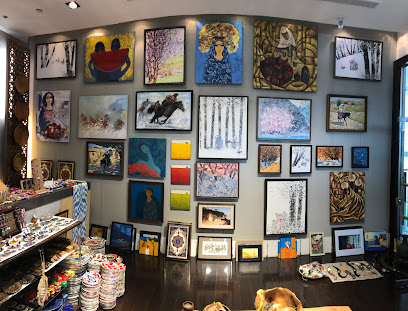
Targoviy Tsentr Vakhdat 2
Explore the vibrant Targoviy Tsentr Vakhdat 2 in Vahdat, Tajikistan, your ultimate shopping and dining destination.
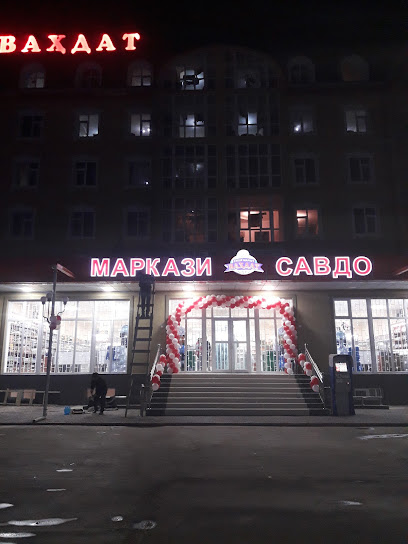
Shopping Center Ilkhom
Explore Shopping Center Ilkhom, a vibrant shopping mall in Vahdat, Tajikistan, offering unique local products and delicious dining options.
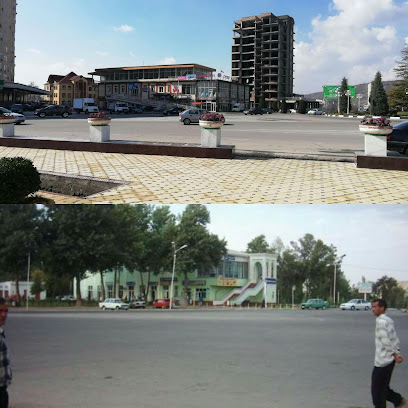
Zoda Art Gallery
Explore Zoda Art Gallery in Dushanbe for unique local art and crafts that capture the essence of Tajik culture and creativity.
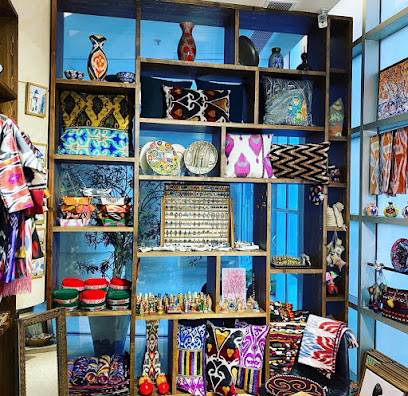
Shopping Center Vahdat
Explore Shopping Center Vahdat in Tajikistan: A vibrant shopping destination offering local crafts, international brands, and delicious dining options.
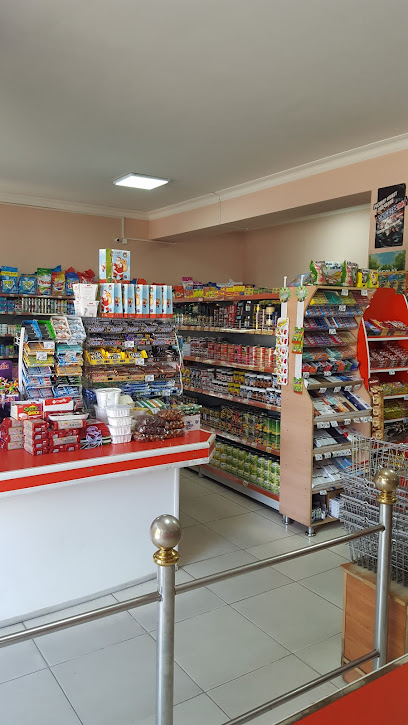
Shopping Center Guliston
Uncover a Shopping Paradise at Shopping Center Guliston: A Fusion of Local Charm and Global Brands in Vahdat, Tajikistan!
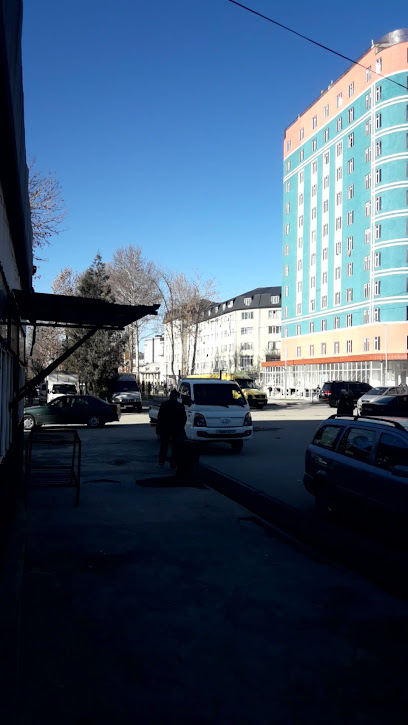
Shopping Center Olimjon
Discover a vibrant shopping experience at Shopping Center Olimjon in Vahdat, where tradition meets modernity in a bustling retail atmosphere.
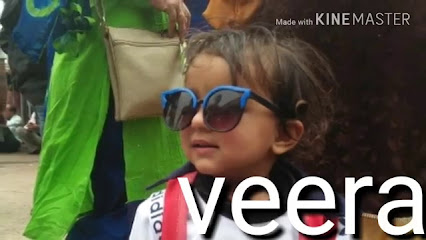
Shopping Center Detskiy Mir
Discover the vibrant Shopping Center Detskiy Mir in Vahdat, a hub of shopping, dining, and cultural experiences that reflects the charm of Tajikistan.
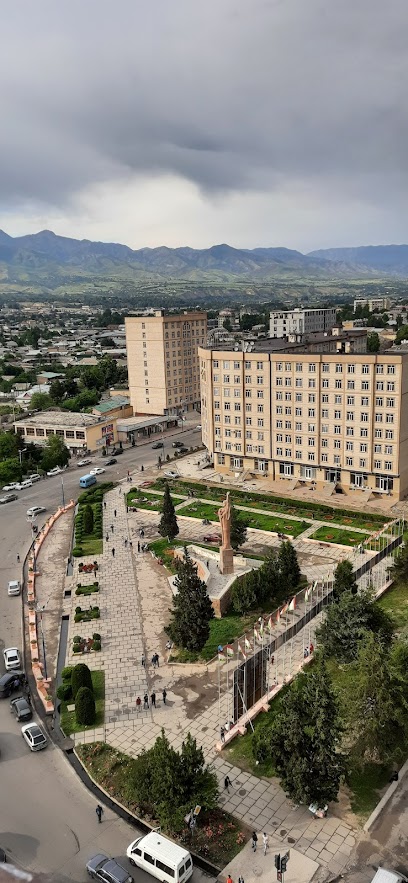
Shopping Center
Explore the vibrant Shopping Center in Wachdat, Tajikistan, where shopping, dining, and entertainment come together in a unique cultural experience.
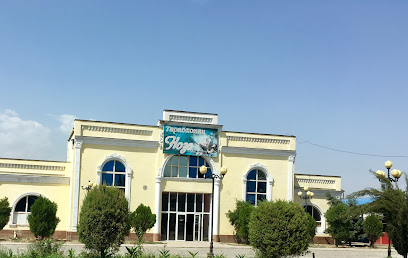
Negmat Karaboyev
Discover the vibrant shopping experience at Negmat Karaboyev Shopping Mall in Vahdat, Tajikistan, where culture meets commerce.
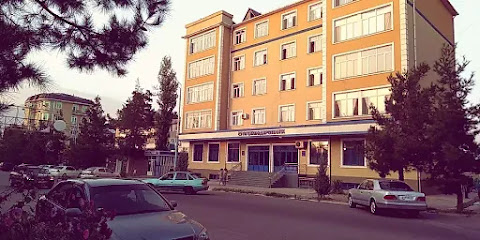
Yovar Supermarket
Explore local flavors and culture at Yovar Supermarket in Vahdat, Tajikistan, a vibrant destination for culinary adventurers.
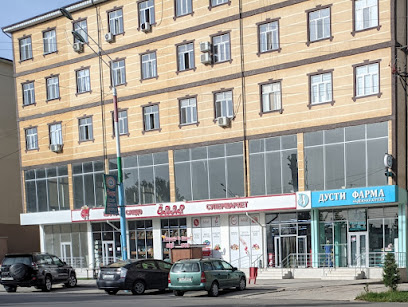
Stansa
Explore the latest in electronics at Stansa, Vahdat's premier destination for tech enthusiasts and travelers alike.

Essential bars & hidden hideouts
Best Bar City
Immerse yourself in Dushanbe's vibrant nightlife at the Best Bar City, where live music and local flavors create unforgettable experiences.

Public Pub
Discover a vibrant dining experience at Public Pub, where local flavors meet global cuisine in the heart of Dushanbe.
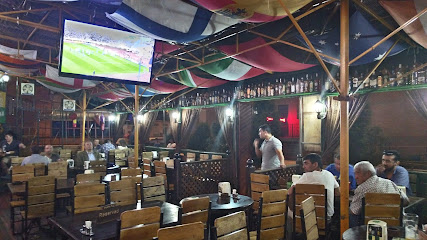
BUNDES BAR BNDS
Experience the vibrant nightlife of Dushanbe at Bundes Bar, where exceptional drinks and unforgettable moments await.
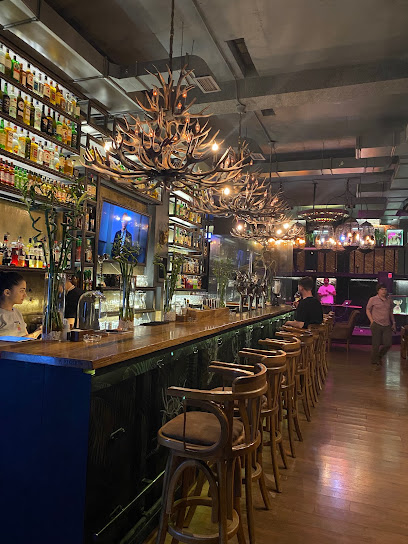
ETNO PUB
Experience the vibrant nightlife of Dushanbe at ETNO PUB, where local culture meets modern bar ambiance.
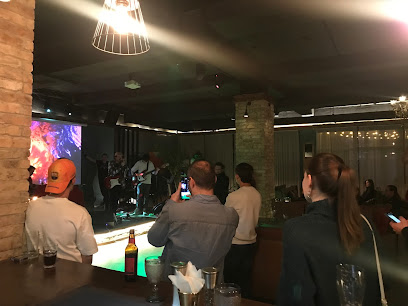
Sakhovat
Experience the vibrant nightlife of Dushanbe at Sakhovat, where locals and travelers gather to enjoy a diverse drink selection in a cozy atmosphere.
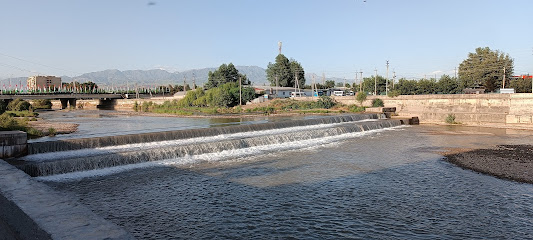
ZAVOD BAR
Experience the vibrant nightlife at Zavod Bar in Dushanbe, where locals and tourists enjoy great drinks and a lively atmosphere until dawn.
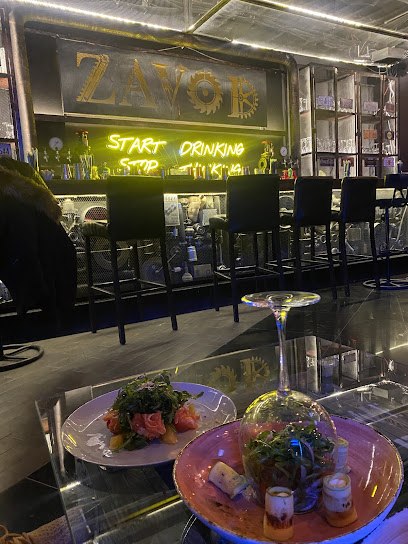
Marsal Lounge & Bar
Experience the lively atmosphere and diverse drink selection at Marsal Lounge & Bar, the perfect spot for relaxation and socializing in Dushanbe.
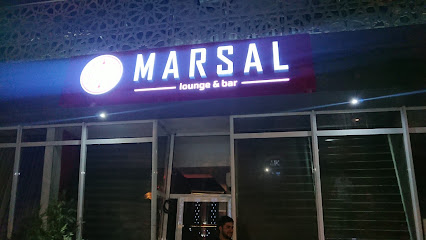
Tajikistan
Experience the breathtaking landscapes and rich culture of Tajikistan, a hidden gem in Central Asia that promises adventure and unforgettable memories.
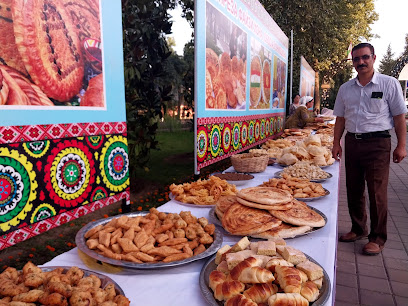
1st Brasserie in Dushanbe
Discover the vibrant atmosphere and local flavors at Dushanbe's 1st Brasserie, where every sip tells a story.
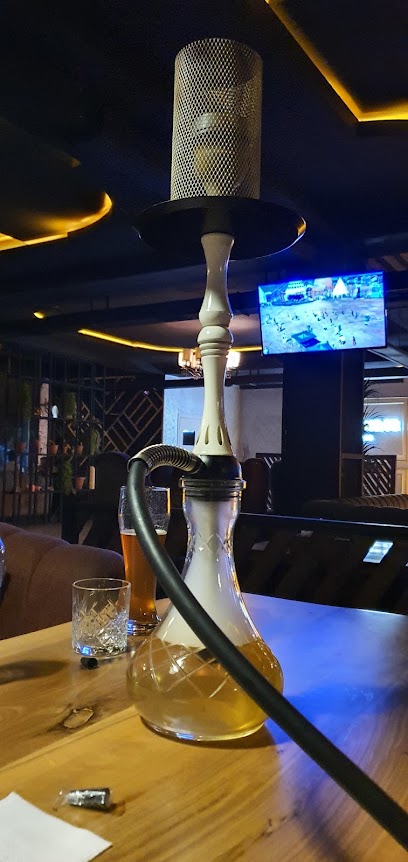
Magic (Lounge bar)
Experience the vibrant atmosphere of Magic Lounge Bar in Vahdat, Tajikistan, where exquisite cocktails meet local culture in a stylish setting.

Central Bar
Experience the vibrant nightlife of Dushanbe at Central Bar, where local culture meets a welcoming atmosphere and delightful drinks.
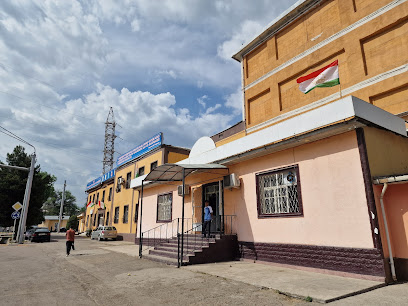
SMOKE-BAR
Experience the vibrant nightlife of Dushanbe at SMOKE-BAR, where cocktails and camaraderie create unforgettable moments.
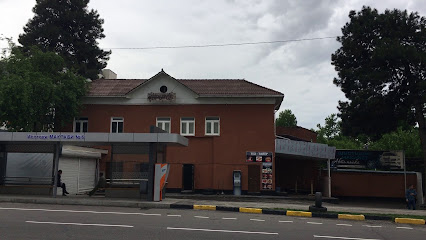
Gazvoda Akhliddin
Discover Gazvoda Akhliddin, Dushanbe's vibrant bar that blends local culture with a welcoming atmosphere for an unforgettable experience.
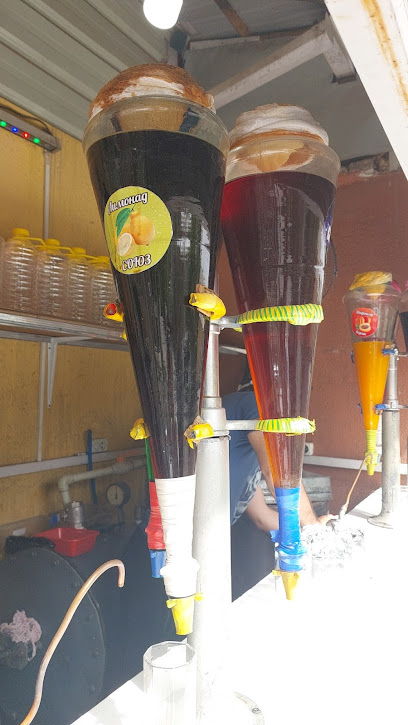
Korolevskiy
Experience the vibrant nightlife of Dushanbe at Korolevskiy, a bar blending local flavors with international drinks in a cozy atmosphere.
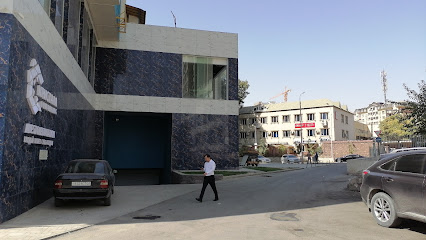
Local Phrases
-
- HelloСалом
[Salom] - GoodbyeХайр
[Khayr] - YesҲа
[Ha] - NoНе
[Ne] - Please/You're welcomeЛутфан
[Lutfan] - Thank youРаҳмат
[Rahmat] - Excuse me/SorryКечиринг
[Kechiring] - How are you?Шумо чӣ хабар?
[Shumo chi habar?] - Fine. And you?Хубам. Ту чӣ хабар?
[Khobam. Tu chi habar?] - Do you speak English?Шумо англисӣ гап мезанед?
[Shumo anglisii gap mezaned?] - I don't understandМан фаҳм намекунам
[Man fahm namekunam]
- HelloСалом
-
- I'd like to see the menu, pleaseЛутфан, менюро бинед
[Lutfan, menyuro bined] - I don't eat meatМан гӯшт намехӯрам
[Man gusht namekhuram] - Cheers!Сайёхат
[Sayokhat] - I would like to pay, pleaseЛутфан, ман мебахшам
[Lutfan, man mebakhsham]
- I'd like to see the menu, pleaseЛутфан, менюро бинед
-
- Help!Кумак!
[Kumak!] - Go away!Дурра шавед!
[Durra shaved!] - Call the Police!Пулисро хоҳиш кунед!
[Pulisro hohish kuned!] - Call a doctor!Духтурро хоҳиш кунед!
[Dukturro hohish kuned!] - I'm lostМан гумшуда шудам
[Man gumshuda shudam] - I'm illМан беморем
[Man bemorem]
- Help!Кумак!
-
- I'd like to buy...Ман мехоҳам харидан кунам...
[Man mehoham haridan kunam...] - I'm just lookingМан танқидана
[Man tanqidana] - How much is it?Баъзе чанд аст?
[Baze chand ast?] - That's too expensiveИн хеле қиматӣ аст
[In hele qimatii ast] - Can you lower the price?Шумо метавонед қиматро кам кунед?
[Shumo metavoned qimatro kam kuned?]
- I'd like to buy...Ман мехоҳам харидан кунам...
-
- What time is it?Соат чанд аст?
[Soat chand ast?] - It's one o'clockСоат як буд
[Soat yak bud] - Half past (10)Ним соат (даҳ)
[Nim soat (dah)] - MorningСубҳ
[Subh] - AfternoonБаъди зеҳн
[Badi zehn] - EveningШаб
[Shab] - YesterdayДирӯз
[Diruz] - TodayИмрӯз
[Imruz] - TomorrowПагоҳ
[Pagoh] - 1Як
[Yak] - 2Ду
[Du] - 3Се
[Se] - 4Чор
[Chor] - 5Панҷ
[Panj] - 6Шаш
[Shash] - 7Ҳафт
[Haft] - 8ҳашт
[Hasht] - 9нӯҳ
[nuh] - 10Даҳ
[Dah]
- What time is it?Соат чанд аст?
-
- Where's a/the...?Куҷост ...?
[Kujo ...?] - What's the address?Суроға чист?
[Surogha chist?] - Can you show me (on the map)?Шумо метавонед манро нишон диҳед (дар харита)?
[Shumo metavoned manro nishon dihed (dar kharita)?] - When's the next (bus)?Қаеро баргузорӣ будааст (автобус)?
[Qaero barguzorii budaast (avtobus)?] - A ticket (to ....)Билет (то ...)
[Bilet (to ...)]
- Where's a/the...?Куҷост ...?
History of Vahdat
-
Vahdat, situated in the fertile Hissar Valley, has a history that stretches back to ancient times. Archaeological findings in the region suggest that early human settlements here date back to the Bronze Age. These early inhabitants benefited from the region's rich soil and access to water, laying the foundations for an agrarian society that would thrive for millennia.
-
During the era of the Persian Empire, the region that is now Vahdat was a significant part of the vast territories controlled by the Achaemenids and later the Sassanids. Its strategic location along the Silk Road made it an important hub for trade and cultural exchange. Merchants traveling between the East and West would pass through, bringing with them not just goods, but also ideas and customs that enriched the local culture.
-
The arrival of Islam in the 8th century marked a new chapter in Vahdat's history. The area became part of the larger Islamic Caliphate, and Islamic culture and learning flourished. The construction of mosques and madrasas attracted scholars and students, turning the region into a center of intellectual and religious life. This period saw the blending of Persian and Islamic traditions, which shaped the city's cultural and architectural heritage.
-
The 14th and 15th centuries brought the influence of the Timurid and later the Mughal empires to Vahdat. Under Timur (Tamerlane), massive architectural projects were undertaken, some of which still leave their mark on the region. The Timurid era was characterized by a renaissance in art and architecture, with the city benefiting from the empire's patronage of culture and learning. This era also saw the strengthening of trade routes and the fortification of the city.
-
In the late 19th century, Vahdat, like much of Central Asia, came under the control of the Russian Empire. The subsequent Soviet era brought significant changes to the region. Known as Ordzhonikidzeabad during the Soviet period, the city saw the construction of new infrastructure, industries, and collective farms. The Soviet influence led to modernization efforts, including education and healthcare reforms, which left a lasting impact on the city's development.
-
With the dissolution of the Soviet Union in 1991, Vahdat, along with the rest of Tajikistan, entered a period of significant transformation. The city reclaimed its historical name, Vahdat, which means 'unity' in Persian. This new era has been marked by efforts to revive and preserve cultural heritage while navigating the challenges of independence. Vahdat has continued to grow, blending its rich historical legacy with the aspirations of a modern, independent nation.
Vahdat Essentials
-
Vahdat is located in the western part of Tajikistan, approximately 20 kilometers east of the capital city, Dushanbe. The nearest international airport is Dushanbe International Airport (DYU). From Dushanbe, you can take a taxi, private car, or public transportation to Vahdat. The journey typically takes around 30 to 45 minutes by road. Shared taxis and minibuses (marshrutkas) are also available from Dushanbe to Vahdat and offer a cost-effective travel option.
-
Vahdat is a compact city, and many of its attractions can be explored on foot. For longer distances, local taxis are readily available and relatively inexpensive. Public minibuses (marshrutkas) and buses connect different parts of the city and nearby areas. Renting a car can also be a convenient option for exploring the surrounding regions at your own pace. Always agree on the fare with taxi drivers before starting your journey.
-
The official currency in Tajikistan is the Tajikistani Somoni (TJS). Credit cards are accepted in some hotels, restaurants, and larger shops in Vahdat, but it is advisable to carry cash, especially when visiting smaller establishments and markets. ATMs are available in Vahdat, but it is wise to withdraw sufficient cash in Dushanbe before traveling to ensure you have enough funds for your stay.
-
Vahdat is generally a safe destination for tourists. However, like any travel destination, it is advisable to take standard precautions. Avoid walking alone at night in unfamiliar areas and keep an eye on your belongings in crowded places. While there are no specific high-crime areas targeting tourists, it is always best to stay vigilant and aware of your surroundings.
-
In case of emergency, dial 01 for fire, 02 for police, and 03 for medical emergencies. The local police station and medical facilities are available in Vahdat. It is recommended to have travel insurance that covers medical emergencies. For minor health issues, there are pharmacies in the city where you can purchase over-the-counter medications.
-
Fashion: Do dress modestly, especially when visiting religious sites. Avoid wearing revealing clothing. Religion: Do respect local customs and traditions. Always cover your head when entering mosques. Public Transport: Do be respectful and give up your seat to elderly passengers. Don't eat or drink on public transport. Greetings: Do greet people with a handshake. A slight nod of the head is also a sign of respect. Eating & Drinking: Do try local delicacies and accept food offerings graciously. Don't refuse hospitality, as it is considered impolite.
-
To experience Vahdat like a local, visit the local markets where you can buy fresh produce and traditional Tajik goods. Engage with locals, as they are often friendly and willing to share stories about the city's history and culture. Don't miss visiting the nearby Varzob Valley, which offers beautiful natural scenery and opportunities for hiking and picnicking. For a unique experience, attend a local cultural or music festival, which are held throughout the year and showcase traditional Tajik music and dance.
Trending Landmark in Vahdat
Nearby Cities to Vahdat
-
Things To Do in Dushanbe
-
Things To Do in Tursunzoda
-
Things To Do in Istaravshan
-
Things To Do in Panjakent
-
Things To Do in Khujand
-
Things To Do in Shakhrisabz
-
Things To Do in Djizak
-
Things To Do in Jizzakh
-
Things To Do in Samarkand
-
Things To Do in Mazar-i-Sharif
-
Things To Do in Qarshi
-
Things To Do in Angren
-
Things To Do in Tashkent
-
Things To Do in Chirchiq
-
Things To Do in Namangan




